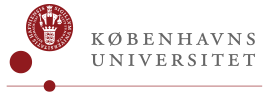Denmark Can Now Produce World-Class Chips
For the first time, Denmark is establishing production of microchip wafers at the leading standard. This makes Denmark a global player in chip production. The new “wafer factory,” which will be part of the University of Copenhagen, also gives a major advantage to Danish quantum researchers.
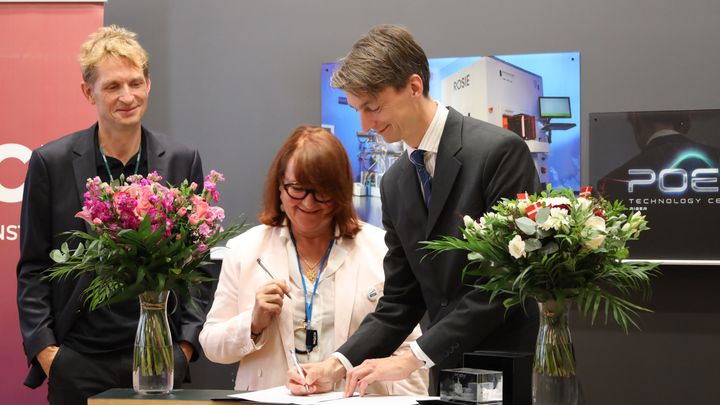
They are called “the oil of the 21st century”. They are found in mobile phones, cars, medical equipment, and military technology. Microchips are a key ingredient in nearly all the technology we use today. And global demand for efficient microchips has for years been growing massively in both industry and research.
In the EU, we depend on microchips from Asia and the USA, and politically it is a goal to make the EU more self-sufficient. Until now, Denmark has only been a minor player in the market because we have not had the facilities to produce chips at the leading standard. But now we will.
With the establishment of the POEM Technology Center at an inauguration ceremony on 21 August, Denmark is getting its first facility capable of producing wafers of the leading 300 mm standard. Wafers are the thin, ultra-pure slices of crystal material deposited on silicon which chips are built from, and which are grown in an advanced high-tech process.
The center is a strategic collaboration between the quantum research center Novo Nordisk Foundation Quantum Computing Programme (NQCP) and the French company RIBER, and it will be part of the Niels Bohr Institute at the University of Copenhagen.
“The new partnership can accelerate the development of tomorrow’s microchips in Denmark and Europe and thereby help address the geopolitical and technological challenges that define the global chip industry. Hopefully, it will also position Denmark on the international market,” says Peter Krogstrup, CEO of NQCP and professor at the Niels Bohr Institute.
Speeds Up Quantum Research
The new facility will not only produce advanced wafers—it will also help speed up the development of quantum chips.
NQCP’s goal over the next 10 years is to develop the technology needed to build large, efficient quantum computers. To do this, researchers need close access to wafer production.
The special machine at the heart of the new facility is specialized in making photonic chips - that is, light-based chips - which are the solution of the future for high-speed communication, optical data processing, and photonic quantum circuits.
The method the machine uses is called molecular beam epitaxy, which makes it possible to deposit extremely thin layers of atoms on wafer plates with tremendous precision and purity. It is exactly this precision and purity that makes it possible to also produce quantum chips with the machine.
“With this facility, we are moving material production in-house, which allows us to research and develop much more efficiently, because we are no longer dependent on asking others around the world to produce for us. Moreover, it helps us transfer the technologies we develop directly into mass production—for the benefit of ourselves, Denmark, and the entire field,” says Peter Krogstrup.
The POEM facility will also be open to industrial partners who want to produce chip prototypes for research and innovation purposes. It will be located in the new Niels Bohr Building, where engineers and technicians from NQCP and RIBER will handle daily operations. It is expected to be fully operational within a year.
“POEM is an example of how Danish research and European industry can collaborate to solve key high-tech challenges. We will benefit greatly from RIBER’s advanced equipment, while they in turn gain access to the world-class technological expertise we have built up here at the institute over many years,” says Joachim Mathiesen, head of the Niels Bohr Institute.
Several key Danish actors are contributing to the project, including DTU Nanolab, NATO Diana, and Aarhus University, with the goal of strengthening the national ecosystem in advanced microchips and quantum technology.
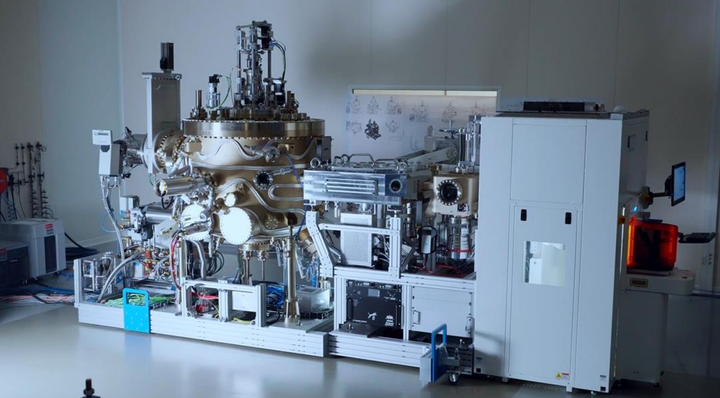
Keywords
Contacts
Peter Krogstrup
CEO of NQCP
Niels Bohr Institute, University of Copenhagen
E-mail: krogstrup@nbi.ku.dk
Joachim Mathiesen
Head of Department
Niels Bohr Institute, University of Copenhagen
E-mail: mathies@nbi.ku.dk
Phone: +45 35 32 52 14
Andreas Bock Michelsen
Programme Manager, NQCP
Niels Bohr Institute, University of Copenhagen
E-mail: andreas.michelsen@nbi.ku.dk
Mobile: +45 51 33 08 47
Maria Hornbek
Journalist
University Communications
University of Copenhagen
E-mail: maho@adm.ku.dk
Mobile: +45 22 95 42 83
Images
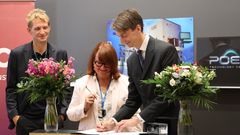
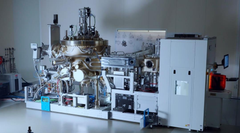
Links
Subscribe to releases from Københavns Universitet
Subscribe to all the latest releases from Københavns Universitet by registering your e-mail address below. You can unsubscribe at any time.
Latest releases from Københavns Universitet
Forskere genopliver gamle ærtesorter i enorm frøsamling: ”Et uudnyttet guldkammer til fremtiden”15.12.2025 10:29:09 CET | Pressemeddelelse
Med en ny AI-metode har forskere fra Københavns Universitet genopdaget 51 gamle ærtesorter, som ikke længere bruges i landbruget, men som kan vise sig lovende til produktion af plantebaserede fødevarer. Metoden er en genvej til at finde nye ressourcer i de grønne skatkamre, som genbankers enorme frøsamlinger udgør.
Fermentering gør havets grøntsager mere spiselige5.12.2025 06:18:59 CET | Pressemeddelelse
Tang har længe været hyldet som en bæredygtig superingrediens – men dens “fiskede” smag er en barriere for mange vestlige forbrugere. Nu viser et nyt studie fra Københavns Universitet, at fermentering med mælkesyrebakterier kan være nøglen til at få tangen til at glide ned.
P-piller kan forringe kvinders mentale trivsel2.12.2025 06:05:00 CET | Pressemeddelelse
Adgang til p-piller i ungdomsårene er forbundet med øget risiko for depression senere i livet. Især kan kvinder, der er genetisk disponeret for psykisk sygdom, risikere at blive ramt af bivirkningen. Det viser et nyt studie fra Københavns Universitet.
Psykologer: Derfor kan protester samle folk på tværs af politiske skel27.11.2025 09:18:05 CET | Pressemeddelelse
Hvordan kan mennesker med diametralt modsatte holdninger pludselig stå skulder ved skulder i protest? Det spørgsmål har et internationalt forskerhold undersøgt. Udgangspunktet er COVID-protesterne, som blev båret af tre samlende strategier.
Sådan bruger planter ingeniørprincipper til at trænge gennem hård jord27.11.2025 07:16:00 CET | Pressemeddelelse
Et internationalt forskerhold med Københavns Universitet, Shanghai Jiao Tong University og University of Nottingham i spidsen har opdaget, hvordan planterødder er i stand til at trænge igennem hård og tæt jord ved hjælp af et velkendt ingeniørprincip. Opdagelsen kan få stor betydning for fremtidens afgrøder i en tid, hvor presset på landbrugsjorden stiger.
In our pressroom you can read all our latest releases, find our press contacts, images, documents and other relevant information about us.
Visit our pressroom